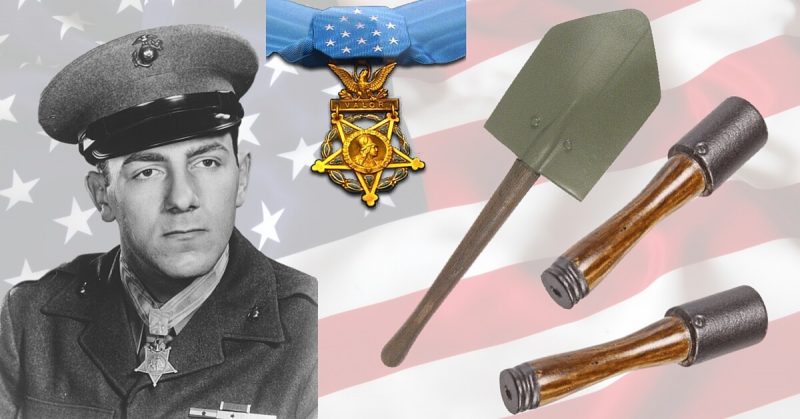Hector Cafferatta would describe himself as the world’s worst baseball player, but that did not stop him from whacking over a dozen grenades out of the air with his entrenching tool as he fought for his life at the Chosin Reservoir in Korea. That in itself is a fascinating story from the history of war. Combine it with the fact that he did it all with frostbitten feet, a shredded right arm, and fighting side by side with a blind Marine and this is a Medal of Honor story with a difference.
After hours of night-fighting in such conditions, it was a sniper’s bullet that finally sent Cafferatta to the ground. However, killing him through freezing temperatures or enemy fire proved no easy task.
Despite the best efforts of the Chinese and North Korean Armies, Hector Cafferatta lived until April 2016 when he finally passed away after a long and fruitful life. Due to his actions on a cold November day in 1950, however, his legacy will continue to live on.
From Football to War
Hector Cafferatta was born on November 4, 1929, in New York City. He moved with his family to New Jersey where he developed an excellent reputation as a football player in High School. The powerful 6-foot 2-inch man played semi-pro football before enlisting in the Marine Corps Reserves in 1948. He was activated during the Korean War, and Cafferatta, along with the rest of 2nd Battalion 7th Marines, headed for the action.
What awaited Cafferatta in Korea was one of the most harrowing battles of survival in the Korean Conflict. On November 27, 1950, over 120,000 Chinese troops began a surprise attack in freezing snowy weather designed to encircle and destroy the United Nations forces in North Korea.
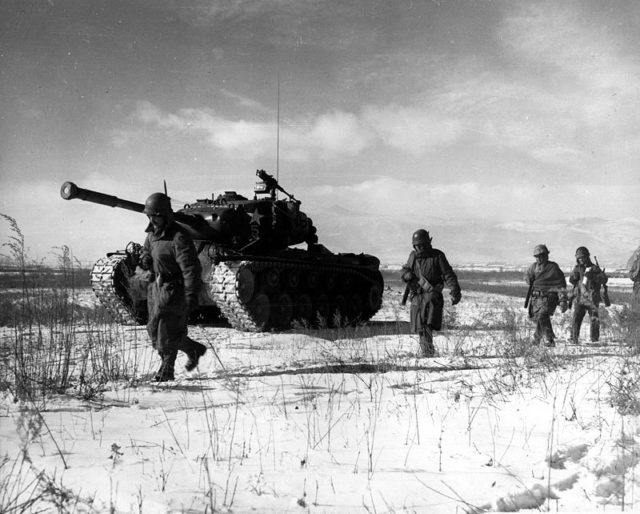
The strategic situation and subsequent Marine resolve were succinctly summed up by Marine General Chesty Puller who, when informed of being surrounded by 100,000 Chinese troops said, “Good, now we can attack in any direction.”
The Marines on the ground were in store for a fight of legendary proportions. The Chinese attack on that November day was brutal, and as darkness fell and the Marines sought to dig in for the night, they found that the ground was frozen solid. Cafferatta and his fellow Marines cut down a few branches for shelter. They settled in for the night, unsure of what was to come.
A Brutal Winter Fight
At approximately 1:20 AM, Cafferatta was awakened to the frightening sound of a massive Chinese assault. With no time to properly dress against the incoming wave of enemy, he instantly rushed out into the fight in nothing more than stockinged feet and a light jacket. The initial assault proved costly to the defending Marines, and many of Cafferatta’s platoon had already been wounded and taken out of the action.
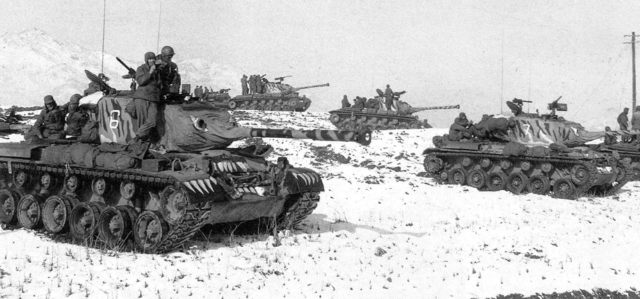
With little regard for his own welfare, Cafferatta could be seen moving up and down the line filling gaps in the defense where necessary. Wave after wave of Chinese infantry continued the assault. When a grenade landed in a ditch next to wounded Marines, Cafferatta rushed to their aid and threw it back just as it exploded causing severe damage to his right arm.
Continuing to fight, he encountered a fellow Marine who had been temporarily blinded by a grenade blast. Telling the blind Marine to grab on to his ankle, he crawled to a small wash near the perimeter and told the Marine this is where we stand and where we will fight.
The blind Marine loaded one rifle while Cafferatta fired another allowing for a rapid pace of fire. Firing his gun so frequently it began to glow, and Cafferatta was forced to cool it in the snow packed around him. Throwing grenades and firing his rifle, Cafferatta was in a one-man battle with a significant portion of a regiment-sized enemy.
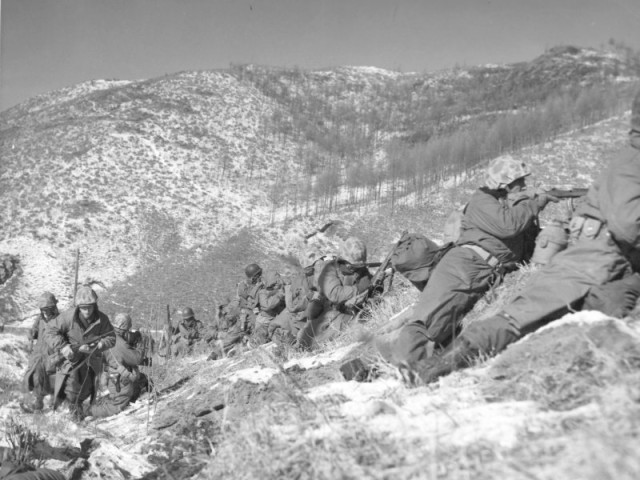
For hours during the fighting, the Chinese hurled grenades in their direction as they tried to neutralize their enemy that was holding them at bay. Cafferatta’s response was to step into the batter’s box with his spade (entrenching tool) and send them back like a home-run in their direction.
To Cafferatta, it was retrospectively one of the most amusing elements of his story as he exclaimed he could easily be considered the world’s worst baseball player. Throughout the night he continued, until a well-placed sniper’s bullet found him, sending him to the ground. Only then did he relent for medical treatment.
Medal of Honor
When Cafferatta finally arrived at the aid station, he had a severe loss of blood, a partially functional right arm, and blue, frostbitten feet. They were astonished he had survived fighting for so many hours in the sub-zero temperatures, without worse damage to his body. For his actions on November 28, 1950, Henry Cafferatta was awarded the Medal of Honor.
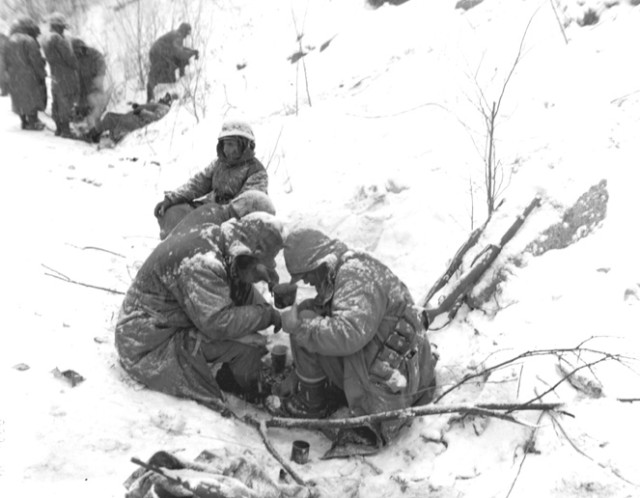
He is officially listed in his citation as having killed 15 of the enemy and wounding more, although officers issuing the report counted over 100 dead Chinese soldiers surrounding the ditch in which Cafferatta had fought. The full number was not included in the citation because they were unsure if anyone would believe it.
After the war, Cafferatta returned home and eventually opened a tavern in New Jersey which he owned and operated for decades. While many people in his hometown were aware of his exploits, this was a history lesson they likely did not learn from him.
Cafferatta was known as a quiet, friendly man who rarely spoke of his time in the war. In a 2014 interview, he stated that he merely did his job by protecting his Marines. He protected them, they protected him, and for that, he was more proud than for his Medal of Honor. Hector Cafferatta passed away on April 12, 2016, a hero of the Korean War and a shining example of humility and honor.
